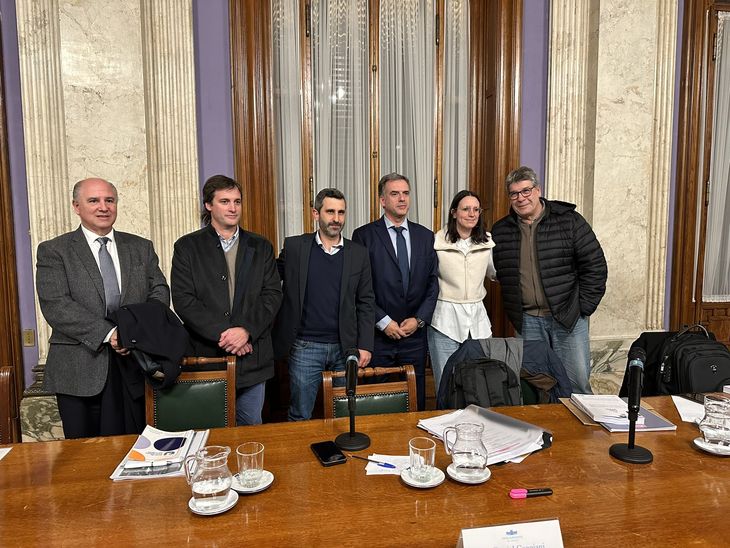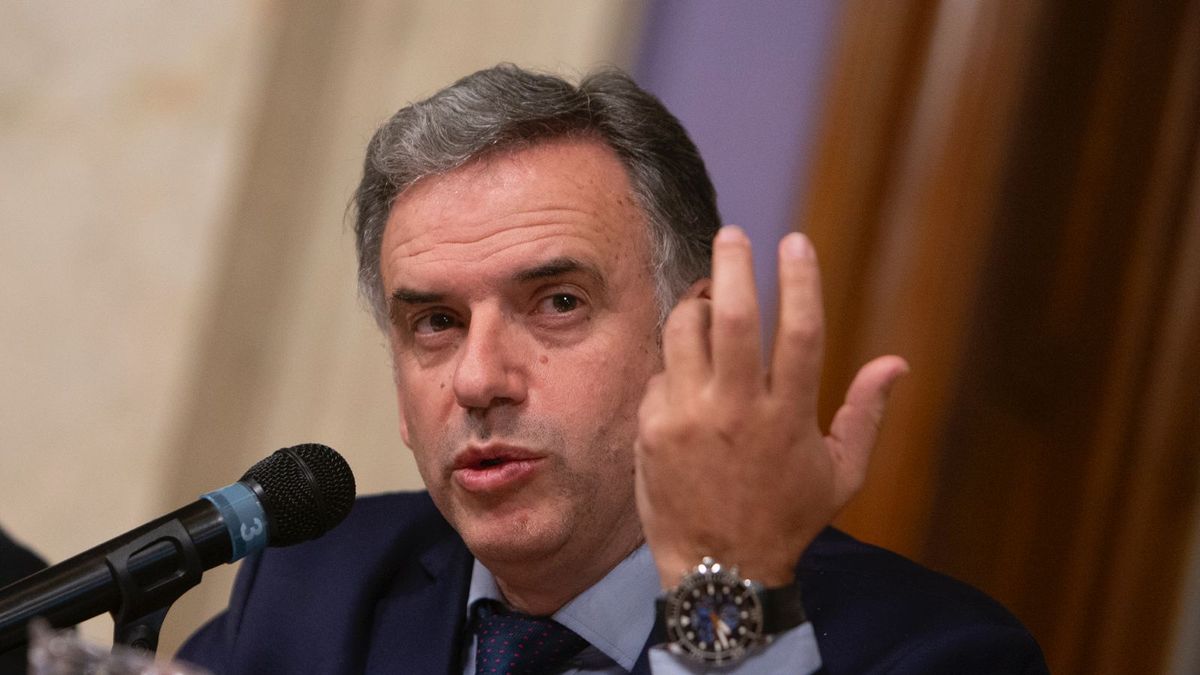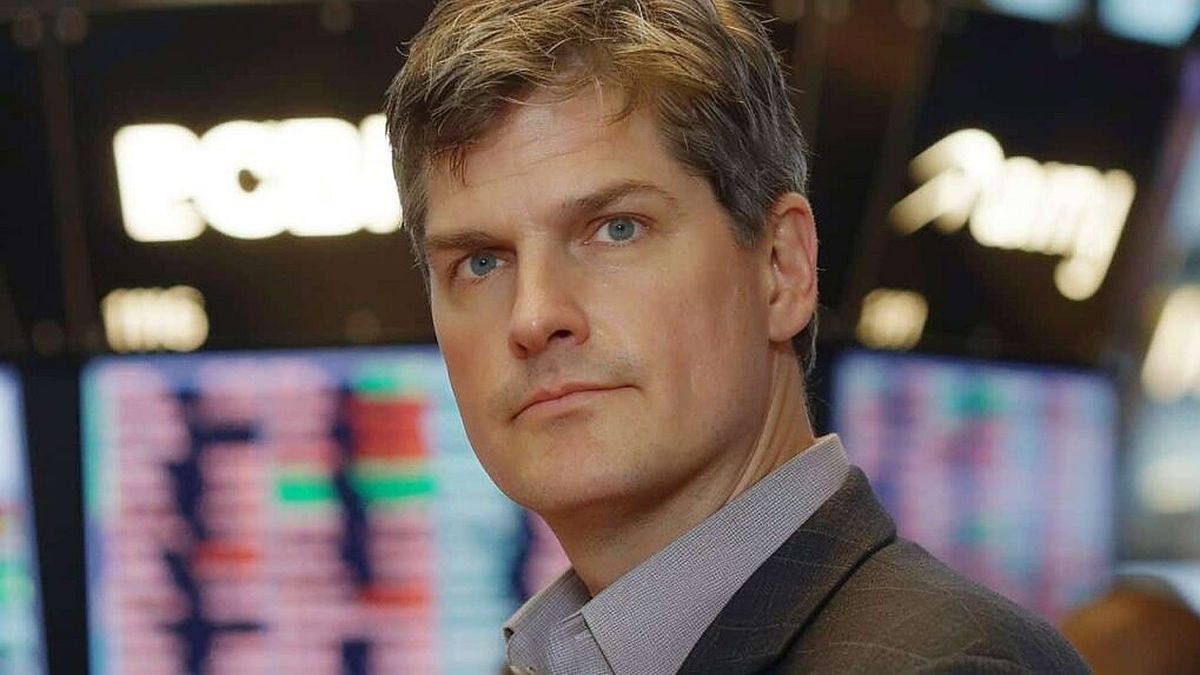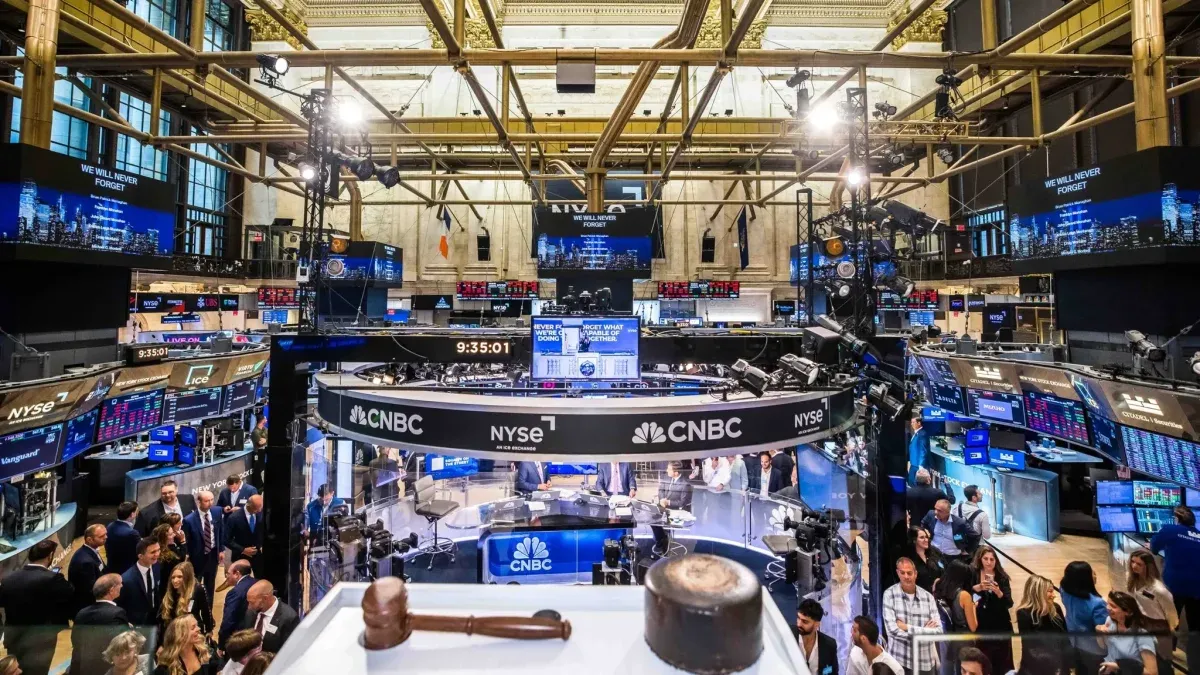An activity organized by Popular Participation Movement (MPP) brought together the presidential candidate of the left-wing space, Yamandu Orsi, with prominent spokespersons from the academic sector, unions and business chambers. There, the favorite competitor in the polls within the internal Broad Front, proposed that the Uruguay begins to have a role of “articulator between the two crazy people next to us”, making clear reference to Brazil and Argentina, which would position the country again in a role that, according to the candidate, was marked by the former chancellor Enrique Iglesias in the ’80s.
“The principles that moved us, that our mentors outlined at the time, for example, that of non-intervention, as a country that promotes peaceful solution of disputes regarding international law, a integrationist vocation without a doubt, and, of course, the search and promotion of human rights in any part of Europe”, Orsi listed as characteristics that the country should return with force. “We are supporters as a country and because of our vocation as defenders of multilateralism and we will always promote the active participation of our country in international organizations,” he said.
WhatsApp Image 2024-06-03 at 22.45.23.jpeg
The activity was organized by the MPP and had Yamandú Orsi as its main speaker.
Orsi further reflected that “Latin America, I don’t know if it is becoming less and less, but it is having very little capacity to influence international politics, that is the vision that I have. The world situation even forces us to be quite the protagonist, to participate in some considerations so as not to be left behind at the same time.” In this sense, he vehemently stated that “Uruguay must strengthen the Celac”. “In other words, taking into account this integrationist vocation, in a first case the Mercosur, but also think about strengthening some of the tools that would also give them a vision of South Americasee being able to promote or energize this Mercosur”, he added.
The importance of Mercosur
In turn, the researcher University of the Republic (UdelaR) and member of the foundation Sowing, Nastasia Barceló, He stated that “Mercosur has a positive agenda that must be demonstrated and defended, but at the same time I believe, and this has been a demand of all governments, it requires modernization because Uruguay “It cannot accept that the bloc is an expanded import substitution zone.”
“I believe that dialogue is required to be able to improve this bloc and not go to a summit to commemorate the 30 years of the Mercosur, to say that the Mercosur “It is a burden and we should withdraw from the block,” the academic questioned, using as an example (although without naming it) a speech by the president. Luis Lacalle Pou.
The specialist put a report on the table that indicated that for Uruguay in 2023 the Mercosur represented 25% of the total exported goods, involving more than 514 companies and for 300 of them it represented more than 50% of their sales. For Barceló this implies “keeping in mind the importance of the region and take care of our partners and our permanence in the block.”
Along these lines, I consider that “there are also very important tools, such as FOCEM (Mercosur Structural Convergence Fund)who helped us develop the tests Covid During the pandemic, it helps us generate and carry out some infrastructure, energy projects, etc.”
Foreign policy MPP Orsi.jpeg

Fernando Pache (CIU), Facundo Márquez (UEU), Fernando Gambera (PIT-CNT) and Natasia Barceló (UdelaR) participated in the event along with Yamandú Orsi.
While, Facundo Marquez, president of the Exporters Union (UEU) He said that “it is through export sector where you can really receive the great investments, where quality work can be generated and where it can be represented for the entire country.” “We talk about advancing in the preferential trade agreements, not only thinking about what is normally more mediated on the public agenda, which are free trade agreements. We not only talk about these agreements, but we also talk about the need to advance in specific agreements, by product and by country, that is, not only concentrate on agreements that are more complex and also where there are many possibilities not only in sectors or regions. more distant, but even from here, from Latin America, from Central America, there are still many opportunities to develop there and deep down we try to put in black and white some issues that we believe Uruguay can move forward,” he explained.
On the role that corresponds to the Mercosur, Márquez assumed that the discussion leads to all opinions coming together in the institution. “We say in the Union of Exporters we live with the conflict, all the actors are there, there are those who are most pro Mercosur, others not so in favor of Mercosur, But we already made a decision a long time ago: we have to go out in today’s reality to negotiate together with the Mercosur, There will be different strategies, in recent years there has been talk of flexibility, now the topic is being mentioned more different speedsYeah Uruguay advances first and then the rest of the countries would join in, but it is clear that it is with Mercosur,” he emphasized.
“When we talk about improving the international insertion and it has to do with the opening of the country and coming from the Union of Exporters, one of the first things that thinks is the exit to the outside. And when we talk about opening and insertion it is outward, but also, and it also depends solely on us, it is an opening inward. It takes a lot of leadership, a lot of will, a lot of political courage to confront some lobbies that sometimes make opening inward more difficult, but I think that we have to urge us to move forward,” mentioned the president of the UEU.
In this regard, he referred to some proposals such as “reducing logistics costs and improve the connectivity, which has a lot to do with international insertion. “We also have the port issue, 85% of the exports that come from the country pass through there. We have been working on this issue for many years, even in the agenda there is a special annex on what are the cost differences that we have in mind. Uruguay, What does it have to do with the port terminals, more complex today because we are facing a monopoly,” Márquez concluded.
Concern about exchange rate delays and competitiveness
For his part, the president of the Chamber of Industries (CIU), Fernando Pache, began his speech by raising some specific items and concerns. “We are very concerned about exchange delaywe are concerned about having the energy most expensive in the region, we are greatly concerned about having services that when they arrive at the border they are deficient and expensive, we are greatly concerned about not being able to be competitive in those areas, given that the Uruguay “As a country, it is famous everywhere for its quality, for the quality of its people and for the quality of the products it exports,” he stated.
“We want to open ourselves to the world in a way that may be different from what we have managed to do until today. We have insisted a lot. We have been trying to open for 20 years China, trying to open different markets in the world. Entrepreneurs must be part of what we know we can offer. We are not always part. Many times we collect the information that is brought to us and it is not always what we really need or could have needed,” he questioned.
Pache did not avoid expressing himself about the present of the Regional integration: “We never said that the Mercosur No. Possibly it is some slogan that has been heard, some inappropriate way of expressing oneself or not so in accordance with the vision of others, but the Mercosur is at this moment and in the last three years the main market for Uruguay. What happened is that China in some way and for a few years had taken the spotlight from us, like Brazil, because it was the number one buyer in that period. But we understand that the Mercosur Yes, and perhaps I would personally dare to say that a little bit of humility is needed among us citizens and the rulers to be able to have a negotiation that, perhaps without becoming the FTApossibly it is to find among the four countries of the Mercosur, What are the products that the four countries are going to be interested in and possibly with those products we can start something different from a generalized Free Trade Agreement proposal,” he explained.
A comprehensive international insertion
Finally the representative of PIT-CNT, Fernando Gambera, He focused his presentation on the role that international missions where businessmen and workers participated in previous governments. “Somehow it marked Uruguay a tendency to show itself as a country even when an official mission went out to negotiate with another country, businessmen, workers and even the third sector sometimes appeared.”
“I believe that we must effectively form diplomatic corps that are capable of inserting Uruguay. This also means that they are able to go out and display the culture of our country and the art of our country and not just what they have to sell or what they have to trade. This facilitates alliances that can later generate operation and transmission of knowledge to Uruguay, because it is the only way to try to overcome selling only commodities, only primary issues in the national economy,” Gambera proposed.
“I think it is a great duty to provide the economy with higher education than those that are capable of going out and selling in Uruguay In the best of the senses. I have no doubt, we must make every national effort to move and think, to ensure that there are many people from whatever country, who have the capacity to think in a supranational way, who can think beyond what the national interests are. concluded the leader of the central office and the banking union.
Uruguay XXI
“Of course we accept the challenge of being able to integrate the actors of private activity in this type of organizations. If something was missing, the presentation that the three of you made for us today and that I believe clearly marks us, and the documents that you yourselves have elaborated, I think they are clear enough to understand that there is a place for those who make this country, for those who generate companies in this country and who also have an integrationist vocation and also a vocation for international insertion,” they maintained from the institution.
Source: Ambito




